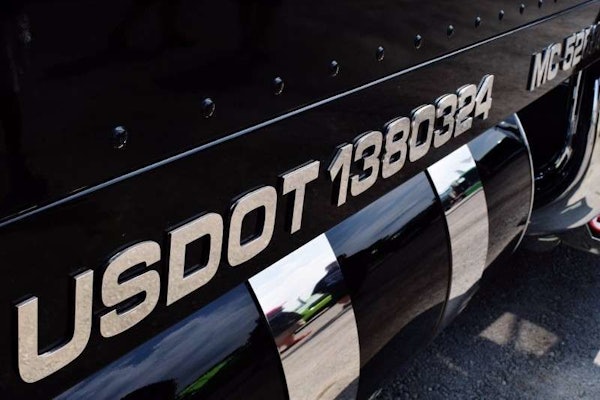Truck manufacturers are experiencing something of an economic boom following one of their worst years in history. Truck orders are up and builders are adding production capacity and, in some cases, rehiring workers laid off during the 2001 economic downturn.
Volvo, Peterbilt, Kenworth, Freightliner, International and Mack have all announced increases in orders recently – with many of those orders coming from fleets trying to buy trucks before Oct. 1. That’s when new, lower-emission engines will hit the market. Fleets are wary of the engines, which employ new technology, are less fuel-efficient and cost more money.
Both Volvo and Kenworth have rehired employees to meet the increased production.
Volvo
Volvo says orders for its Class 8 trucks are up enough to increase production at its New River Valley assembly plant in southwestern Virginia.
Volvo’s Randy Bolinger says a combination of factors is contributing to the increase in orders including better economic conditions. “We don’t know exactly what’s causing it, but no one does,” he says. “It’s a combination of a stronger economy, the pre-buy and lower inventories.”
Volvo has given its dealers incentives to increase their inventory. The company says it has no plan to ramp up production more than it already has because it doesn’t want to lay-off employees if a downturn follows. “We’re pretty close to the point where we won’t be able to produce anymore trucks before Oct. 1,” Bolinger says.
At Volvo, truck production has increased from 50 to 60 trucks a day.
Orders are also good at Volvo’s sister company, Mack, which reported a 27-percent increase in orders during its first quarter. “A slight increase of order intake could indicate that the market has bottomed out,” said Volvo CEO Leif Johansson.
Freightliner
Freightliner, which also makes Sterling and Western Star trucks, has also experienced an upswing in business. The company, which is increasing production to meet the new orders, says that accelerated purchasing ahead of the Oct. 1 engine deadline is a contributing factor.
In its first quarter 2002 report, parent company DaimlerChrysler said sales in its Freightliner division continued at lower levels due to the state of the market. But the company also said increased incoming orders would help, and that Freightliner’s turnaround plan is still on track. Of the $450 million in savings planned for Freightliner in 2002, $400 million is “already certain,” the company said.
Paccar
Things are also rosier at Paccar, parent company of Peterbilt and Kenworth.
In March, Peterbilt said orders are up 46 percent over 2001. Peterbilt General Manager and Paccar Vice President Nick Panza said the company would increase its production by as much as 20 percent.
“Orders increased tremendously in the first quarter of this year compared to a year ago” said Panza. “They’ve basically doubled.”
“There’s a number of factors at work here,” said Panza. “There’s the issue of the new emissions engines due October 1, that’s a portion of the increase. There’s also the fact that the economy is picking up and some companies who haven’t bought in a while are jumping back into the fray. Resale prices are picking up too, and that’s helping companies that have been holding off buying new equipment. A third factor is that our dealer inventories were way down and they need to have trucks on the ground as business picks up.”
Kenworth says the order increases are also due to changes in fleet trade cycles, stability in the economy and an aggressive dealer network that is in good financial shape. It has increased production at an Ohio plant to meet orders. PACCAR Chairman and CEO Mark Pigott is on record as saying that nearly 100 workers already have been added this year at the Kenworth plant in Renton and that a total of 200 will be hired by midsummer. He said the production rate would climb at least 50 percent.
International
Steve Keate, president of the truck group for International Truck and Engine Corp., said that an increase in truck orders has bumped production to 120 trucks per day, following recent months at 110 per day. International has decided that 150 per day will be maximum production this year.
“Sales are picking up,” Keate said in a May news teleconference. “We had about 4,000 new orders in April and about 4,000 new orders in March. That doubles the number of orders we had for the first couple of months. We still have productions slots left, but we expect them to fill up in the next couple of months.”
Keate believes those orders are due mostly to economic recovery. If customers were spurred by desire to avoid the new technology, they would have postponed the orders at least a few months, he reasoned.





